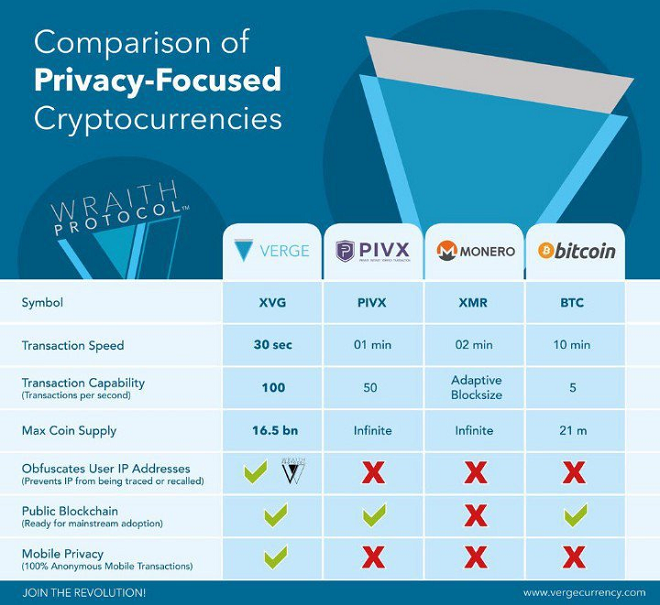Verge, the altcoin that is striving to deliver enhanced privacy for users, announced that it will be undergoing a hard fork on their official Twitter page on January 20, 2018. The motivation for the fork is to allow all mining pools to process stealth transactions. The fork will occur at block 1,824,150.
The team is emphasizing that the transition will be smooth and there should be no cause for concern among coin holders. The fork will not affect any coins; it simply changes the way transactions are processed. No new coins will be issued as a result of this fork. Rather, it will replace the old chain to allow for stealth transactions.
Today, the Verge team announced the success of the hard fork, pointing out that stealth transactions are now being processed.
The coin, originally called DogeCoinDark, is popular with the community. The project is led by developer Sunerok, who is known to answer questions and make remarks regarding the project on Reddit threads.
Verge’s uniqueness lies in how it lets users choose between a private ledger and a public one. This system is called the Wraith Protocol. Verge believes that this is an effective way of giving users the privacy they need, while also providing the utility of public ledgers when needed.
The Privacy Coin Battle Heats Up
Verge is competing against other “privacy” coins like Monero, PivX, and ZCash. There appears to be a strong desire among the community for coins that offer genuine privacy. It is a common misconception, especially among recent entrants to the cryptocurrency world, that Bitcoin is anonymous. Actually, it is pseudonymous, and it is possible for transactions to be linked back to personal identities.

This has spurred many teams into developing coins that offer complete privacy by obfuscating the sender, recipient, and transaction amounts. Various coins achieve this to varying degrees and take different approaches to establishing privacy. The fight to become the first global-scale privacy coin is heating up, and 2018 is expected to be the year when the gloves come off.
The most challenging hurdles in cryptocurrency do not have to do with adoption and government acceptance, though those are significant. The real challenges, at least for the moment, lie in developing and bolstering the technology, which is still incapable of serving its users on a large scale. Privacy-focused or not, all cryptocurrencies of any worth are directing their energies to solving technical challenges. With many coins having recently received funding, they hopefully have the resources to solve these challenges in 2018.
Verge’s hard fork is a sign that the team is slowly plugging away at its development goals. They have missed a few deadlines before, and that has had investors concerned. The fork’s focus, stealth addressing, is a technique that prevents the recipient from being discovered. If you’d like to know more about Verge and its technical features, read our article, “What Is Verge?”.
Frenzied online discussions might give the impression that hard forks are bad, but this is not the case. Forks can be good – given, of course, that they are conducted smoothly. A mismanaged fork will certainly harm a coin in the market, although a good one won’t necessarily lift it up.
Verge is Stepping Up Its Game
Verge’s roadmap for 2018 includes Rootstock smart contracts (making it the first privacy coin to offer smart contract capability) and an online merchandising store. The RSK smart contract is currently in testnet for Bitcoin. They will also release an updated roadmap, something that the community will be eager to hear.
It is clear that cryptocurrencies are going mainstream. 2018 may very well be the year of the altcoin, a year in which the word “altcoin” loses its negative connotation. Bitcoin might have been the first player, but that may mean little as blockchain developers incorporate rapid technical developments into exciting, new projects.

